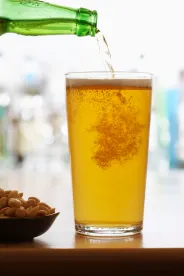MillerCoors is suing Bud Light for its unlike-them-we-don’t-use-corn-syrup campaign. (You probably saw the ad’s launch during this year’s Super Bowl, but, just in case you didn’t, go ahead and click here.) Hitting back, MillerCoors filed a lawsuit against Anhauser-Busch last Thursday, asking a federal court to immediately end Bud Light’s campaign (or, better put, “nip it in the Bud”), and make it pay MillerCoors back for whatever it earned from the no-corn-syrup campaign, as well as MillerCoors’ attorney’s fees, too.
This case highlights yet another high-profile example of how food-and-beverage makers, among others, can turn to the Lanham Act for seeking potent remedies against foul-playing competitors. And, although the Lanham Act is often viewed as mainly (if not exclusively) for trademark actions, this case also reminds us that the Lanham Act can do far more.
In large part, actions like these stem from precedent the Supreme Court set a few years back in Pom Wonderful v. Coca-Cola Co. There, the Supreme Court clarified that competitors can use the Lanham Act to police against false or misleading food-and-beverage labeling—which, as Coca-Cola argued, seemed like something only government regulators could patrol. As a result, Pom essentially gave food and beverage companies a green light on challenging false or misleading competitor advertising under the Lanham Act, particularly as to food-and-beverage labeling. (For a more detailed overview of Pom, see our prior discussion of it and its impact on direct-competitor claims.)
Since Pom, more companies have begun launching similar claims at their rivals. And no wonder—the Lanham Act lets them seek a bevy of remedies not usually available under other consumer-protection laws. Under it, and as MillerCoors v. Anhauser-Busch examples, one may seek damages, including the profits gained from the false or misleading marketing, corrective advertising, and, in “exceptional cases,” attorney’s fees.
Given all that, we had noted that it wouldn’t be too surprising if more companies began pursuing Pom-style claims. And that’s exactly what has happened since. That said, it’s worth noting that these claims aren’t reserved only for food-and-beverage companies—see, e.g., Sprint v. ATT—or large conglomerates. In fact, smaller businesses can and have begun to also enter the fray as well. (See our previous article.) So this trend is certainly something to keep a close eye on, especially for general counsels and corporate management involved in the food-and-beverage industry.




 />i
/>i

